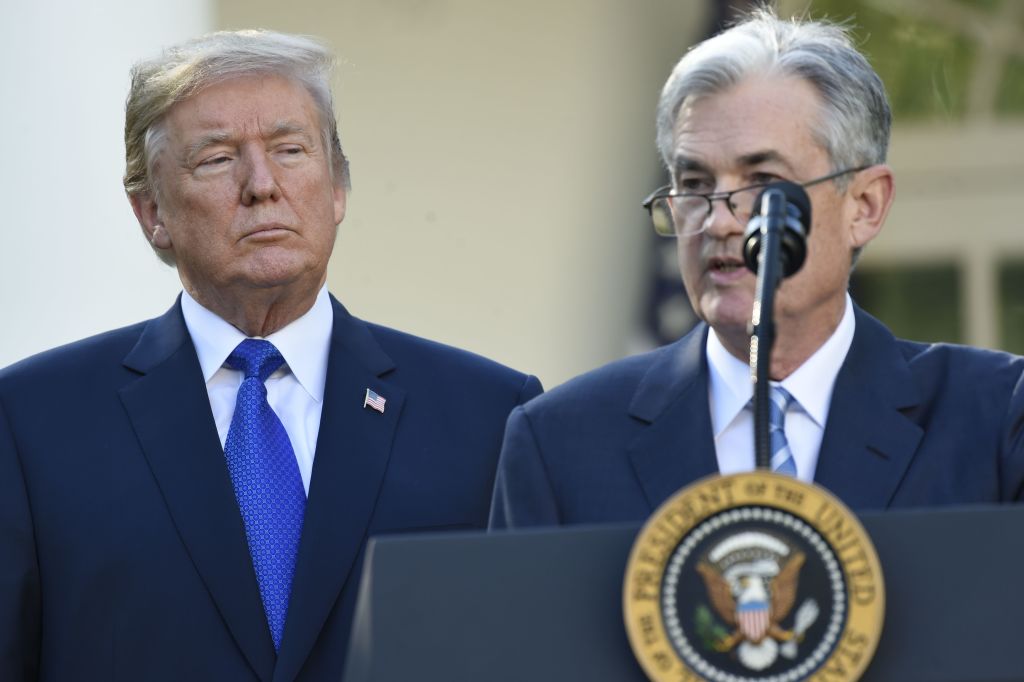“I made a lot of money, I was very successful,” said Donald Trump, when asked if he felt the president should have a direct say in the Federal Reserve’s policy decisions. “I have a better instinct than, in many cases, people that would be on the Federal Reserve or the chairman.”
We’ve been here before. Prior to Liz Truss’s disastrous 2022 mini-budget, she sidelined the Office for Budget Responsibility and wanted to review the Bank of England’s independence, convinced that their groupthink made them unable to grasp how her radical re-orientation of policy would revive the nation’s economy. In this she channelled the thinking of her economic gurus, who wanted to return to the days when the Treasury controlled both monetary policy and economic forecasting. In short, they reckoned they had a better instinct than the “anti-growth coalition” that had come to direct Britain’s economic framework.
A US President can’t just take control of Fed policy the way a British prime minister could notionally do with the Old Lady. Most Fed governors are selected by the regional Reserve Banks, so lie beyond the president’s influence. But the commander-in-chief gets to choose the chairman, and so could find someone like-minded. And to the extent the chairman has an outsized influence at the committee meetings which set interest rates, the president could apply considerable leverage through this back-channel.
We can probably guess what a Trump-directed Federal Reserve would then look like, because the United States had something similar before. During the presidency of Richard Nixon, Fed chairman Arthur Burns submitted to pressure from the president to keep interest rates low amid the period’s high inflation. This enabled the Nixon administration to run large fiscal deficits, since the Fed “monetised” government debts by effectively printing new money to cover the shortfalls.
But the addition of new money supply to the economy worsened inflation. It was only later in the decade, when President Jimmy Carter appointed Paul Volcker as Fed chairman, that this policy was reversed. Volcker’s famous “Saturday Night Special,” at which he announced the start of a period of sharply higher interest rates, forced governments to tighten their belts, and wrestled inflation back to the ground.
Ever since, it’s been orthodoxy for politicians to stay out of monetary policy, something enshrined in Britain in 1997 when Chancellor Gordon Brown gave the Bank of England operational independence. This has always rankled those who feel it’s undemocratic to give so much power over the country’s economic direction to an independent, unaccountable body. But the argument for central bank independence resembles what Winston Churchill said of democracy — a lousy regime, except for all the others. Or put simply, do we really want another Liz Truss moment?
The US is not Britain, of course. Trump would like to pull a Truss, raising the deficit to cut taxes, all while keeping interest rates low. But such measures would be much less likely to cause a market panic of the sort Britain experienced in the autumn of 2022. With by far the world’s deepest capital markets, not to mention its reserve currency, the US would not likely witness the dumping of government bonds on a scale anything like what Britain did.
Nevertheless, it would probably experience a gradual reduction in demand for its bonds, which would result in a steady rise in interest rates amid rising inflation. The pot might not boil immediately. Nevertheless the water in which the proverbial frog sat would likely keep getting hotter until the US got its next Volcker moment. Trump’s best hope would be to have finished his term before then.











Join the discussion
Join like minded readers that support our journalism by becoming a paid subscriber
To join the discussion in the comments, become a paid subscriber.
Join like minded readers that support our journalism, read unlimited articles and enjoy other subscriber-only benefits.
Subscribe